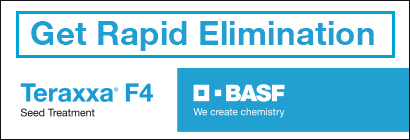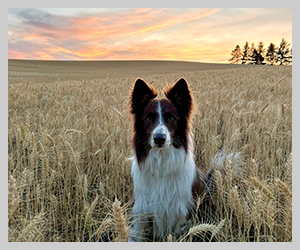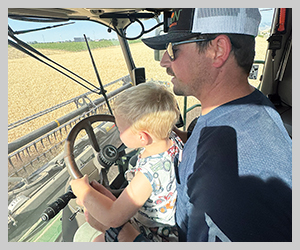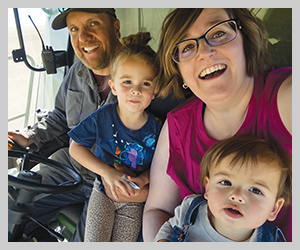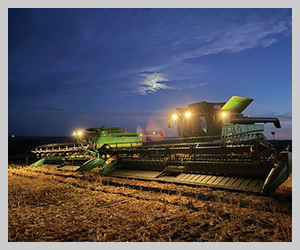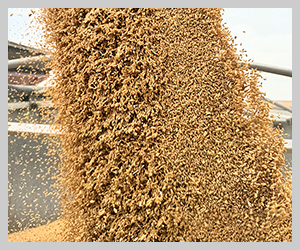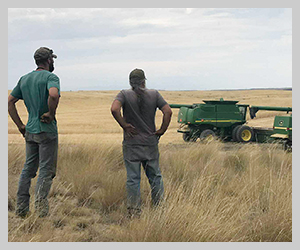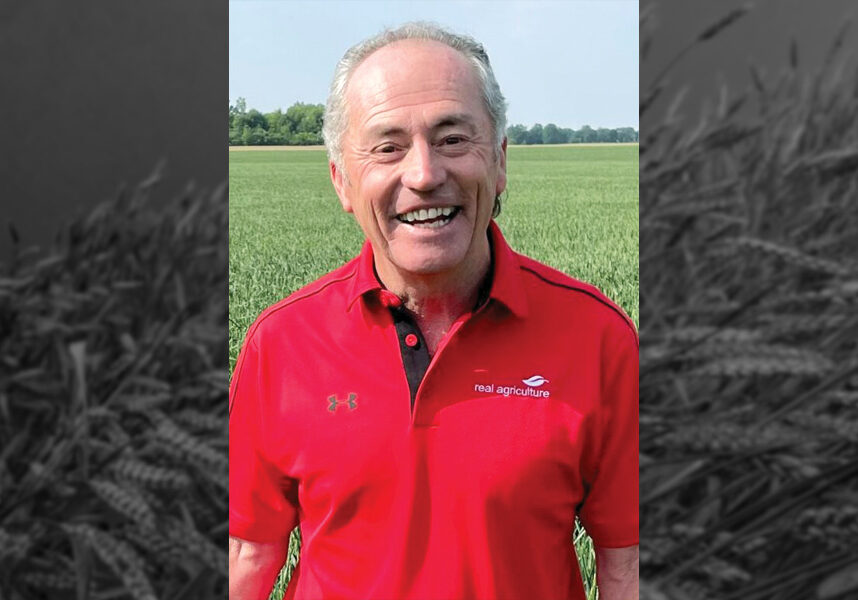
Peter “Wheat Pete” Johnson will be the featured speaker at this year’s Wheat College, which will be held June 4 at the Wheatland Fairgrounds in Ritzville, Wash.
Johnson is the resident agronomist with Real Agriculture, where he hosts a weekly podcast, “Wheat Pete’s Word.” He spent 30 years as the Ontario cereal specialist and operates a small farm near Lucan, Ontario, where he constantly tries out new production ideas. While Johnson plans to cover a range of topics at Wheat College, he’s hoping growers’ questions and feedback will play a major role in what he talks about.
“Come loaded for bear with questions, and we’ll let the questions and what the audience wants to learn direct the presentation,” he said.
One of the topics that will feature prominently in Johnson’s presentation is lessons learned from the Great Lakes Yield Enhancement Network (YEN) program. The program, which is based on a similar program in the UK, was started by the Michigan Wheat Board and the Grain Farmers of Ontario in 2021. According to Johnson, the YEN program flips the traditional “researchers doing small plot research on the farm” and, instead, takes yield data from farmers’ crops and tries to figure out what things matter. The Great Lakes YEN includes farmers not only from the Great Lake states and Ontario, Canada, but states like Missouri, Kentucky, New York, and, for the first time, a farmer in Washington state. However, Johnson is clear that this isn’t just another yield contest.
“In a yield contest, whoever has the best soil wins, you know? The dairy farmers always win because they have alfalfa and manure in the rotation,” he said. “This particular program looks at percent of potential yield. That really gives a nice benchmark for a grower to say, ‘wow, I’m really doing a good job of capturing the resources available to me’ or ‘oh my gosh, where am I slipping the clutch?’”
In the YEN concept, it’s the yield vs. the potential yield that is most important. Growers use an equation based on a location’s solar radiation and rainfall to come up with a potential yield number that they then compare to their actual yield. In their meetings, growers in the YEN will compare yields from farms with similar soils and talk through what the growers did during the growing season. Johnson said that discussion is a phenomenal way to engage growers and helps researchers sort out what the critical components to good yields are. There is also a Canadian Maritime YEN that includes growers from Prince Edward Island, Nova Scotia, and New Brunswick, which Johnson will also talk about.
Washington dryland wheat growers might wonder how well the data from the Great Lakes region or the Maritime region will translate to Eastern Washington. Johnson acknowledged that the specifics might be different, but it’s the process of figuring out the important factors that matters most.
“Let’s figure out which ones of these are important, make the most difference,” he said. “You have to look in your own jurisdiction at the components that matter and figure out what those are and then come back and say, okay, if it’s heads per meter squared, if that is what drives my yield, how do I get more heads per meter squared? Or, if it’s seeds per head or whatever that answer is, you can zero in and try to do a better job on the things that matter most in your area.”
One of the factors the Great Lakes YEN is exploring is splitting data by latitude, north vs. south, because they’re finding significant differences.
“When you say the dry area of Washington state, well, okay, it’s dry, but your climate isn’t necessarily all that different than the climate in Ontario because of your elevation,” Johnson pointed out. “And if moisture is always (the limiting factor), that’s the beauty of percent of potential yield; we look at that moisture calculation. How much moisture do you have in the soil at the start of the year? How much rainfall do you get? And if you’re moisture limited, we take that into account when we do your potential yield.”
Johnson calls farming the “art of applying the science” and says a good farmer is both an artist and a scientist. His podcast is available at realagriculture.com/wheat-petes-word/.
Following Johnson’s presentation, growers will hear industry updates followed by lunch. The afternoon session of Wheat College will include a rotation of topics from researchers and industry stakeholders that will include a drone demonstration, using nutrient management to produce high-yielding wheat, and a look at how seed care impacts the crop.
Wheat College is free of charge and open to all growers. You do not have to be a member of the Washington Association of Wheat Growers (WAWG) to attend. Please preregister by filling out the form at wawg.org/ammo-workshops/ or by calling the WAWG office at (509) 659-0610. RSVP by May 15 to be entered in multiple prize drawings. Registration, networking, and doughnuts will begin at 9:30 a.m., with the main event beginning at 10 a.m.



